- Home
- Tim LaHaye
02 Thunder of Heaven: A Joshua Jordan Novel Page 23
02 Thunder of Heaven: A Joshua Jordan Novel Read online
Page 23
“That I’ve offended God? That’s a no-brainer … odd … never admitted that out loud before …”
“Do you repent of your sins … and do you want to receive forgiveness for them? Do you want to come into a relationship with the living God?”
“Hermoz, truth be told … I’ve tried to keep this a secret … tried to keep it screwed on tight …”
“Secret?”
“Tried hard to succeed at the externals in my life: military career, professional life. But the inside of me … a pretty dark, lonely, restless place … is a mess. Morally … spiritually … and every other way. I think God’s the only one who can fix it.”
“Then do you accept the work of Jesus Christ on the cross, the Son of God, who was the only, once-and-for-all, perfect sacrifice for your sins, and who then walked out of the grave three days later?”
“I accept that. I believe that … as God is my witness I do …”
“Do you invite Jesus the Christ to come and live inside you through the Spirit of God and to be your Savior and your Lord?”
But Joshua’s voice stopped at that point.
There was weeping somewhere, until Joshua realized that the tears were his own. His face was against the cold steel bars. Bowed and broken. Cornered and isolated. Faced with the most important decision he would ever make. In a forsaken place of torture. A jail cell that smelled of urine. A place of heartless cruelty. But one thought surfaced … this place … it reminded him of something else. The place of the cross? Where Jesus paid the price for him … crucifixion. He had known it abstractly, but now it was much more than that. As if he was standing before the crude, bloody cross of Christ. Now it finally seemed to make sense to him. That a place of horror and cruelty could also become the source of all that is good and true. So too this jail cell could be the right place, at the right time, for something miraculously good to happen.
Joshua’s words were hardly perceptible: “Jesus come into me … my Savior … oh God …”
Joshua tried to hold back the tears but couldn’t.
Then there were no more words.
Until another voice came out of the darkness, from another cell, from another prisoner.
“Dr. Abdu?”
“Yes …”
“Please, may I pray that prayer to Jesus too?”
FIFTY-FOUR
At the Bushehr nuclear-launch facility in Iran the prelaunch was completed. The tops of the three missile silos, all in a row, opened like the eyes of a triple-eyed dragon. The warning siren was wailing, and the warning lights on each silo were flashing.
The three Qiam missiles had been tested. Their accuracy was absolute. Thanks to Russian engineering assistance, the formerly outdated short-range missiles were now long-range, and at speeds of more than Mach 3, they would outfly the Israeli jet fighters that would try to intercept them. More importantly, each had a new radar system that would send deflecting countermeasures to ward off defensive Israeli ground-to-air missiles.
The three weapons officers, each at the launch panel, listened to the countdown.
Then, with a deadly choreography of hands, they simultaneously reached forward and pushed the green buttons on the panels in front of them. Smoke and fire blew out of the silos as the three nuclear missiles hurtled into the air and on to their trajectories — streaking toward Tel Aviv, Haifa, and Galilee.
Inside IDF headquarters, where they had verified the launch of the Iranian missiles, Israel’s military chief bowed his head with his staff. This was the moment of truth.
They prayed the prayers of Nelah. Even though the calendar told them this was not yet the Day of Atonement, the impending threat of annihilation told them that it was.
The order was given at IDF headquarters to launch three separate defensive Return-to-Sender equipped missiles. They would come from sites as far south as the Judean Desert to a base in the far north at Katzrin along the Golan.
IDF radar had picked up the first Iranian nuke heading on a course that looked as if it was in the direction of Tiberias in Galilee. At Katzrin, the first defensive missile blew out of its silo. It was armed with a refashioned Israeli version of the Return-to-Sender laser system.
The trio of Iranian nuclear warheads flashed over Jordan and neared Israeli airspace.
The IDF had already scrambled several F-15s into the air when the intel alerted them of a potential attack. But that didn’t seem to matter. They tried to hit the Qiam missiles with defensive warheads of their own over Jordan airspace, but the effort was fruitless. The missiles flashed by with blinding speed. Israeli ground-to-air defenses were launched along the Jordan River sending up a raft of patriot missiles. But the newly engineered Qiam guidance system had automatic countermeasures built in, along with a frighteningly accurate missile-avoidance system.
The nukes were untouched. Still on course, they were heading for Tel Aviv, Haifa, and Tiberias on the Sea of Galilee.
Tiberias was the closest. It would get hit first.
Amidst the sound of ear-piercing sirens, thousands of screaming tourists piled into buses, attempting to flee the city along the famous sea. But for them there would be no time for escape if the nuclear warhead hit its mark. The rows of hotels and houses would be incinerated all the way around the coast up to Tabha. The blast would level everything in the area, including the ancient city of Capernaum where Jesus had taught in the synagogue and had settled during His initial ministry. It would all be gone. Along with the Sea of Galilee itself. The nuclear fireball would instantly evaporate the water.
The Iranian nuclear warhead was streaking toward the outer border of the Sea of Galilee. At IDF command they stared at their radar screen. A gut-wrenching thought was right there in front of them. Their RTS-armed missile might not be able to intercept the incoming nuke in time. They had done the logistics with Joshua Jordan. There was a minimum angle of encounter required between the laser beam shot from their RTS missile and the nose cone of the incoming nuclear warhead. Their RTS had been fired down from the north, thirty miles away from the projected intersection point with the Iranian nuke. But at the calculated speed of the Iranian missile, the required intercept might not happen. The staff at IDF headquarters could see that now. The Iranian nuke might blow right past their RTS missile.
And hit Tiberias.
Meanwhile, an RTS missile from a site in central Israel was in the air, closing in on the Iranian Qiam rocket heading toward Tel Aviv.
To protect Haifa an RTS missile had been launched from the Jezreel Valley to intercept that nuclear warhead.
The IDF staff watched the screen. The blinking cursor of the Iranian nuke heading toward Galilee. The other blinking dot, their RTS missile heading toward the nuclear missile at an oblique angle.
No one was breathing. It would take only seconds to learn their fate. But the clock seemed to stand still.
Two miles up, the incoming RTS was a thousand feet from the Iranian nuke. But it was heading at an extreme angle. The RTS intercept was not designed to work at that kind of approach.
The laser blasted out from the RTS missile and struck the side of the nose cone of the Qiam missile where the guidance system was housed. But the nose cone of the nuke had also been protected by a Russian antilaser shield.
That was something that the Israelis had prepared for. Their Mossad agents had wiretapped the conversations of Iranian nuclear engineers. So they had upped the capacity of Joshua Jordan’s laser. They hoped it could penetrate the Russian-made shield.
The RTS laser beam entered the guidance program of the Qiam nuke from the side. The data stream from the laser did a light-speed mirror reversal of the trajectory.
The Iranian nuke did a slow U-turn and started back toward its place of origin.
But the Iranian missile had experienced a slow fuel leakage. It would never find its way home. Instead, it would land along the border of Jordan and Syria — without detonating.
The missiles heading for Tel Aviv and Haifa were encountered dead-o
n by the outgoing RTS defensive missiles. Perfect laser contact was made with the onboard guidance systems in the nuclear warheads. The nukes swung around in an arc and headed back to their launch site.
At IDF headquarters, they saw it all on radar. There was a burst of screaming and cheers and backslapping and weeping. A few of the younger officers hopped onto the tables and bellowed at the top of their lungs.
Iranian command in Bushehr was tracking the missiles. The officers saw what was happening. They sprinted from their posts and madly scrambled to escape the port city before the devastation hit. They were too hysterical to appreciate the irony: they would have no problem with traffic because the Iranian government, not trusting the local population, had already evacuated the city’s two hundred thousand residents two months before the launch, suspicious of sabotage. The city was now a ghost town of empty homes and stores.
All except for the members of the Iranian nuclear project. Now they were careening around corners at seventy miles an hour in their Mercedes Benzes — trying to escape.
But in vain.
The second nuke that had been intended for Haifa would hit Bushehr first.
There was a blinding light. The iridescent cloud expanded over the city, followed by a wave of sonic force and a solar inferno that swept out in a circumference of obliteration that melted down to black glass and ash the entire Iranian nuclear facility as well as the nuclear enrichment building and the launch silos. The second nuclear detonation came from the second missile only a minute later.
The twin mushroom clouds rose ten miles into the sky. When it cleared, the only thing left of the nuclear facility and the surrounding city was a few gnarled pipes sticking out of the ground, a single cement wall, and the reinforced girders of a dozen former office buildings that now jutted out like mangled, steel skeletons.
When the news reached President Mahmoud Ahmadinejad, he was in his palace, surrounded by his advisors. His aides were silent, eying each other. Then the president exploded into an uncontrollable rant. Even at his age he had the energy to do that well. Ahmadinejad, his face contorted with rage, balled up his fists and swung them into the air like a boxer who could not find his opponent.
“How can my nuclear dream be destroyed? Gone … gone!”
While he was cursing the destruction of Bushehr, somewhere two hundred thousand Iranians were quietly celebrating the fact that they had been forced to move out of their homes and shops in Bushehr because of Ahmadinejad’s paranoia. He had, inadvertently, saved them all from destruction.
As the sun began setting over Iran, Ahmadinejad, in his mad fury, cursed the day.
John Gallagher and his makeshift assault crew had dug in at their positions in the woods in the Shenandoah Valley. They had a good view of the metal barn. Now they were swatting bugs and waiting.
Then there was some movement. A man, unarmed, left the barn and walked over to a car. He started it up and walked back to the barn.
A few minutes later the big barn doors swung open. A cart with a crate on top, slightly larger than a refrigerator, was rolled out by four men. They gingerly slid the crate off the cart and into the back of the truck. Then one of the men stayed in the back of the truck. Gallagher thought that he was hooking something up, maybe a remote detonating device.
Then the man in the truck jumped out and locked the back doors. Two men with clip-loaded automatics exited the barn, and they handed an extra one to him.
A fourth man appeared. He was also armed. One of the men turned back as if to reenter the barn, perhaps to close the doors.
Deputy Colwin’s voice came over the bullhorn: “This is the sheriff’s department … drop your weapons immediately. Drop them …”
Then the two-second count, one thousand one, one thousand two …
The men by the barn froze. They lifted their weapons, trying to figure out where the warning had come from.
Gallagher gave Dumpster the signal.
There was a chest-punching boom from Dumpster’s 50-caliber that echoed through the valley. The gunman closest to him dropped as if pulled by an invisible cord.
The two gunmen closest to Dumpster saw the flash. Dumpster quickly squeezed off another shot, winging one of the men in the leg and causing him to drop his weapon momentarily. The other gunman yelled out wildly and scattered automatic fire through the woods, back and forth in the direction of Dumpster and Gallagher.
Gallagher unloaded his 357 toward the gunman, but he was moving as he was returning fire, and then skirted around the truck.
Don’t shoot at the back of the truck! Gallagher told himself.
Blackie’s shotgun was blasting from the other side of the clearing along with the sound of shots being fired by Frank Treumeth and Deputy Colwin.
In the melee, the gunman injured in the leg by Dumpster had crawled under the truck and was clawing his way to the cab. Gallagher tried to get a clear shot at him but couldn’t. He yelled to Dumpster, “You okay? Dumpster!” Gallagher thought he heard groaning coming from Dumpster’s position.
More shots on the other side of the truck, on his blind side. Then a final furious volley of shots. Gallagher was trying to figure it out quickly. One bad guy down, probably dead. Another injured and under the truck. A third, apparently not hit, was on the other side of the truck somewhere.
Where’s the fourth guy?
The answer came. The fourth gunman popped up from his position, crouching under the truck engine, and he frantically opened the cab door and swung himself inside the truck. Then he geared it forward. Gallagher reloaded and blasted several rounds from his .357 into the door as it roared past. He couldn’t tell if his shots had found their mark.
Gallagher could see three dead terrorists on the ground. The fourth was driving a truck armed with a nuclear device down the gravel road. Gallagher took off running after the truck, thinking that it might have to slow down at the security gate. He was panting and out of shape, but he kept running. He could see the truck up ahead racing down the dirt road spitting gravel and dirt.
Then something popped out of the woods in front of the truck.
It was Ruby with her Remington shotgun. She fired once into the windshield from her shoulder. The truck kept coming. She pumped it with jackhammer speed and fired again, this time from the hip, again into the windshield.
The truck slowed, swerved slightly, and then rolled to a stop with the front end in the underbrush.
Gallagher ran up, yelling to Ruby to stay clear of the truck. “Great shooting, Ruby. Wow, you’re incredible. I married the wrong woman. Listen, I think Dumpster was hit. Go find him back there and help him …”
Gallagher, holding his handgun, swung the truck door open. The mess inside of the cab told him immediately that the threat was over. By the time Ruby reached Dumpster, Blackie was there. Their Allfones were working again, and they called for an EMT and the sheriff’s department to come. Dumpster had been hit in the clavicle, and he was squirming in pain. But in between groans, while they tried to stop the bleeding, he kept saying, “We got ‘em … we got ‘em … we got ‘em …”
Frank Treumeth and Gallagher slowly opened the back of the truck and turned on the overhead dome light. Several thick cables ran from the crate into the cab of the truck. They lifted the top off and looked in.
“Ever seen one of these?” Frank asked, as they surveyed the compact nuclear bomb.
“Only in pictures,” Gallagher said. Then he added, “How about we put the top back on, okay?”
In Union Beach, the truck with the Mexican food markings on its side was still parked in front of the machine shop, fully loaded. Several of the men were milling around.
The assault team had picked up their conversation through their listening device, so they knew they had automatic weapons underneath their jackets. The three-man assault team in the black SUV now had to intercept the truck. The driver slammed the vehicle into gear and sped toward the machine shop, two blocks away. They had to round the large sewage treatmen
t facility to get there.
Inexplicably, a parade of seven septic trucks from the local community had chosen the night hours to pull into the access lane leading to the sewage plant, lining up to unload at the site, two abreast. They were blocking the access road in both lanes.
The driver of the special-ops team blasted his horn. He shouted for them to get out of the way.
The septic-truck driver stuck his head out the window and shouted back a few profanities.
The team could see, off in the distance, that the truck with the nuke was leaving the parking lot of the machine shop. It stopped momentarily and then turned onto the street. It was on a road parallel to the access road by the sewage plant, about a hundred yards away. The driver of the SUV immediately saw that they had only one option.
The three men grabbed their weapons, jumped from the car, and sprinted through a gate in the chain-link fence that cordoned their SUV from the other street. Their legs were windmills as they ran furiously across the grassy grounds of the sewage plant and toward the truck. They knew that they were now in plain sight, but they also knew that if they did not stop this truck, it would get into Manhattan and destroy New York City and a whole lot of its inhabitants.
The truck, which had been rolling about fifteen miles per hour, now sped up quickly. Two men were in the front cab and two were out of sight in the back. The driver glanced over at the three men sprinting toward the truck, who were now about thirty yards away. The lead man for the assault team gave the command, “Drop and fire!”
The three men hit the ground and began firing, two at the tires and one at the driver. The driver fell forward and then was pulled down by his passenger who took over the wheel. The tires were flattened. The truck was slowing and rumbling loudly as it rolled forward, shuddering on shredded rubber.
The three men jumped to their feet and raced furiously toward the truck, shooting as they ran.

 Glorious Appearing: The End of Days
Glorious Appearing: The End of Days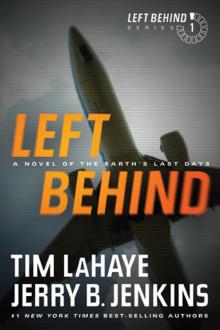 Left Behind: A Novel of the Earth's Last Days
Left Behind: A Novel of the Earth's Last Days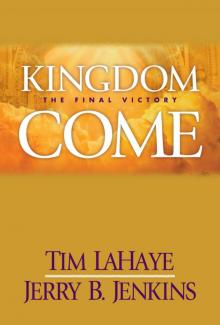 Kingdom Come: The Final Victory
Kingdom Come: The Final Victory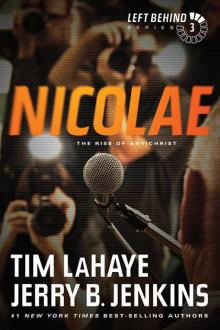 Nicolae: The Rise of Antichrist
Nicolae: The Rise of Antichrist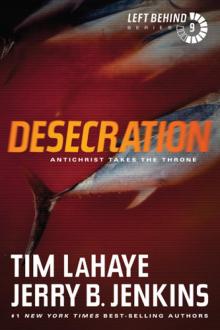 Desecration: Antichrist Takes the Throne
Desecration: Antichrist Takes the Throne Mark's Story: The Gospel According to Peter
Mark's Story: The Gospel According to Peter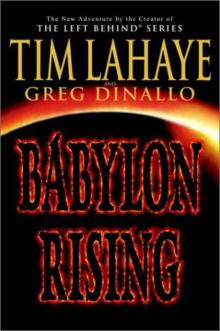 Babylon Rising
Babylon Rising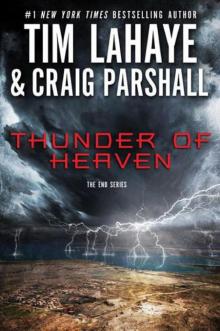 Thunder of Heaven: A Joshua Jordan Novel
Thunder of Heaven: A Joshua Jordan Novel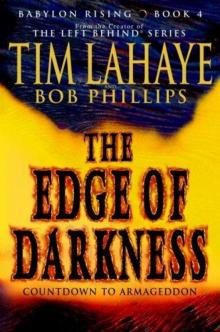 The Edge of Darkness
The Edge of Darkness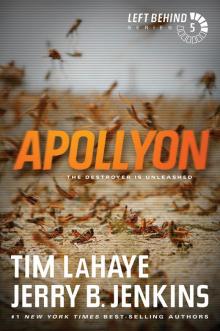 Apollyon: The Destroyer Is Unleashed
Apollyon: The Destroyer Is Unleashed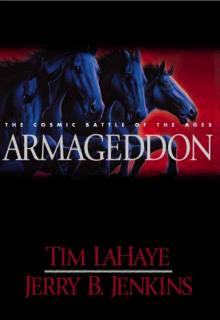 Armageddon: The Cosmic Battle of the Ages
Armageddon: The Cosmic Battle of the Ages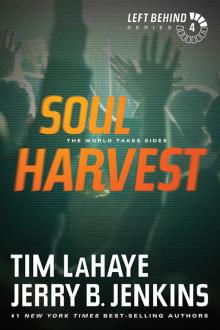 Soul Harvest: The World Takes Sides
Soul Harvest: The World Takes Sides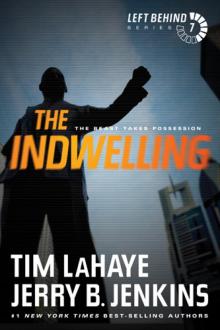 The Indwelling: The Beast Takes Possession
The Indwelling: The Beast Takes Possession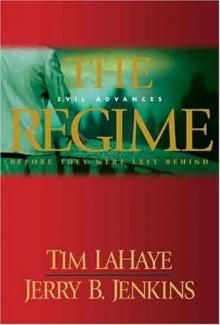 The Regime: Evil Advances
The Regime: Evil Advances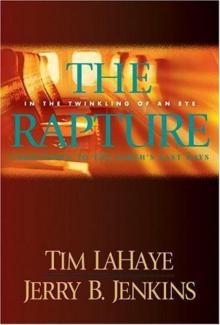 The Rapture: In the Twinkling of an Eye / Countdown to the Earth's Last Days
The Rapture: In the Twinkling of an Eye / Countdown to the Earth's Last Days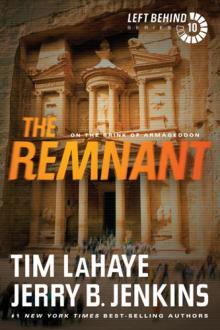 The Remnant: On the Brink of Armageddon
The Remnant: On the Brink of Armageddon John's Story: The Last Eyewitness
John's Story: The Last Eyewitness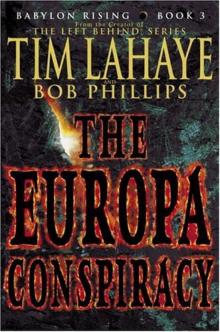 The Europa Conspiracy
The Europa Conspiracy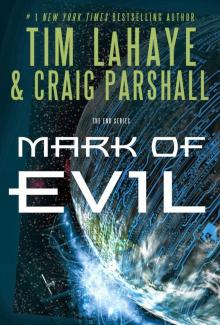 Mark of Evil
Mark of Evil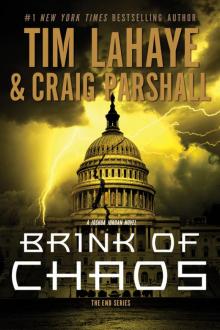 Brink of Chaos
Brink of Chaos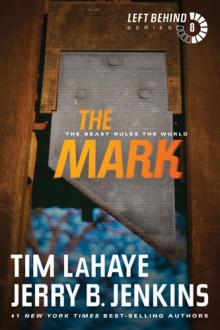 The Mark: The Beast Rules the World
The Mark: The Beast Rules the World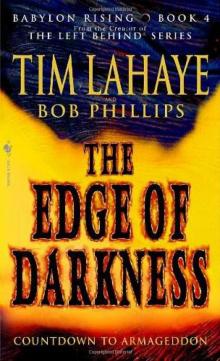 04 The Edge of Darkness
04 The Edge of Darkness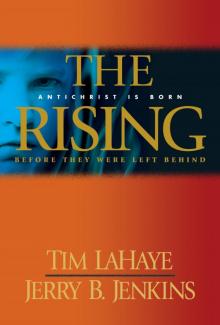 The Rising: Antichrist is Born / Before They Were Left Behind
The Rising: Antichrist is Born / Before They Were Left Behind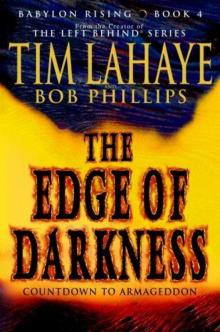 Babylon Rising: The Edge of Darkness
Babylon Rising: The Edge of Darkness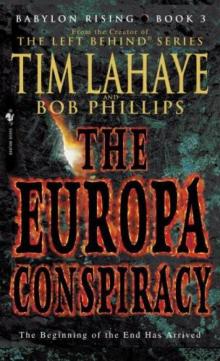 03 The Europa Conspiracy
03 The Europa Conspiracy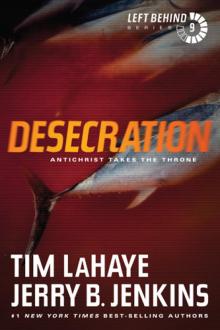 Desecration
Desecration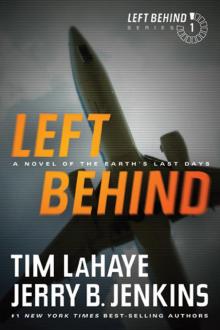 Left Behind
Left Behind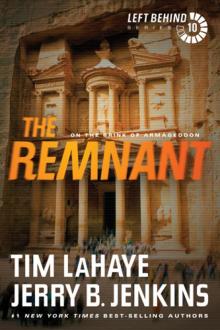 The Remnant
The Remnant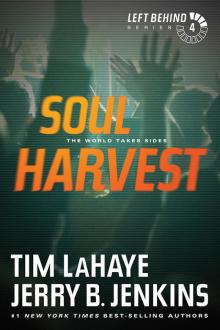 Soul Harvest
Soul Harvest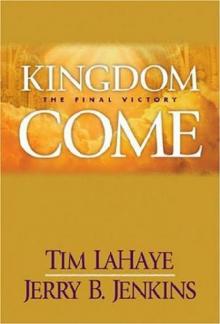 Left Behind Book 13: Kingdom Come The Final Victory
Left Behind Book 13: Kingdom Come The Final Victory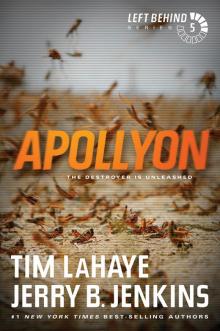 Apollyon
Apollyon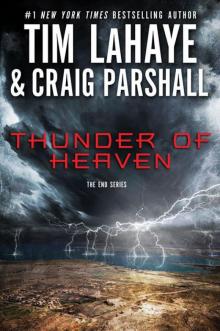 02 Thunder of Heaven: A Joshua Jordan Novel
02 Thunder of Heaven: A Joshua Jordan Novel Glorious Appearing
Glorious Appearing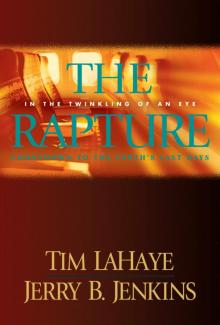 The Rapture: Evil Advances / Before They Were Left Behind
The Rapture: Evil Advances / Before They Were Left Behind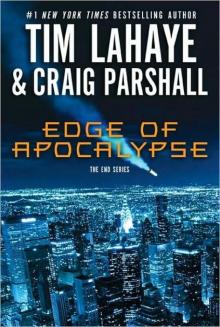 Edge of Apocalypse
Edge of Apocalypse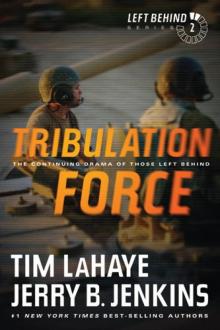 Tribulation Force
Tribulation Force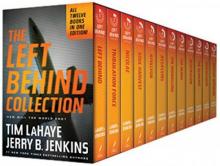 The Left Behind Collection: All 12 Books
The Left Behind Collection: All 12 Books Black Friday
Black Friday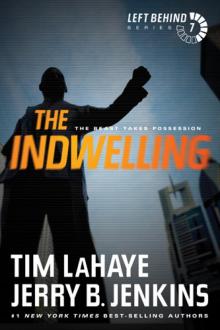 The Indwelling
The Indwelling The Left Behind Collection
The Left Behind Collection